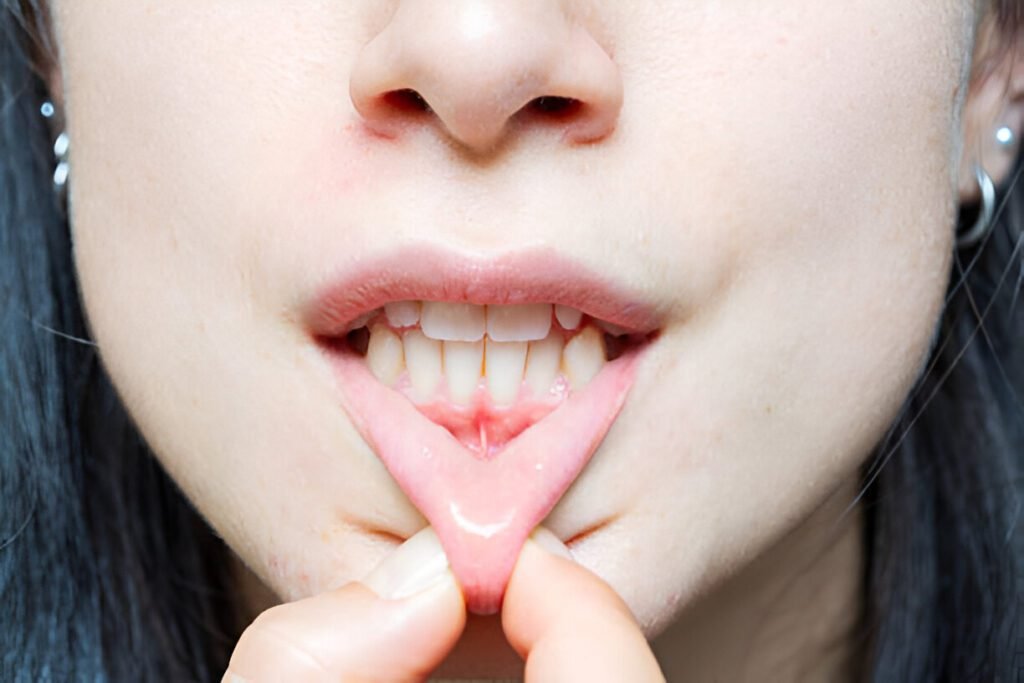If you have receding gums and are considering dental implants, you might be wondering if it’s possible. Receding gums, often a sign of gum disease, can cause concern for anyone seeking dental implants. This article will explain whether you can get implants with receding gums, what treatments may be needed beforehand, and the best alternatives if implants aren’t suitable for you.
Understanding Receding Gums
Receding gums occur when the gum tissue surrounding your teeth pulls back, exposing more of the tooth or its root. This condition often results from gum disease (periodontitis), aggressive brushing, poor oral hygiene, or factors like smoking or genetics. At Holburn Dental and Implant Centre, patients considering low-cost dental implants in Aberdeen are advised that healthy gums are essential for successful implant placement. Proper gum care not only protects your natural teeth but also ensures a strong foundation for long-lasting implants.
How Much Does a Single Dental Implant Cost in the UK?
Can You Get Dental Implants with Receding Gums?
The good news is that, in many cases, you can still get dental implants with receding gums. However, the process may be more complicated and require some additional steps to ensure the implants are successful.
1. Initial Assessment
Before considering implants, a dentist will evaluate the condition of your gums and jawbone. Both healthy gum tissue and sufficient bone density are crucial for supporting dental implants. If you have gum recession, the dentist will determine how much of your gum tissue is affected and whether the recession has stopped.
What is the Best Age to Get a Tooth Implant?
2. Treating Gum Disease
If gum disease caused your gum recession, it must be treated before you can proceed with implants. Treatment may involve a deep cleaning procedure called scaling and root planing, where tartar is removed from above and below the gum line. In some cases, antibiotics might be prescribed to eliminate any remaining infection.
3. Addressing Bone Loss
Receding gums often go hand in hand with bone loss in the jaw. If there isn’t enough healthy bone to support an implant, a bone graft may be necessary. During this procedure, a dentist adds bone material to your jaw to create a stable foundation for the implant.
Can You Lose Your Gums Around Dental Implants?
4. Gum Grafts
In cases where the gum tissue has receded significantly, a gum graft may be recommended. This procedure involves taking tissue from another part of your mouth, such as the roof of your mouth, and attaching it to the affected gum area. This graft helps to reinforce the gum and provides better support for the implant.
Risks of Getting Implants with Receding Gums
While it is possible to get dental implants with receding gums, there are risks involved. One major risk is that the implant may not integrate properly with the jawbone if the gums and bone are not in good condition. This can lead to implant failure, which may require further treatment.
Can NHS Pay for My Dental Implants?
1. Peri-implantitis
Peri-implantitis is a type of infection that can occur around the implant, leading to inflammation and potential bone loss. This condition can cause the implant to become loose and may even result in the loss of the implant. Maintaining good oral hygiene and regular dental check-ups are essential to prevent this.
2. Implant Failure
Without sufficient gum and bone support, the implant may fail to stay securely in place. This can lead to discomfort, further recession, and the need for additional procedures. Therefore, it’s crucial to follow your dentist’s advice on preparing your gums and jawbone before implant surgery.
How Many Teeth Can One Implant Replace?
Alternatives to Dental Implants
If your dentist determines that you are not a good candidate for dental implants due to severe gum recession, there are alternatives available. One common alternative is a dental bridge. A bridge uses the surrounding healthy teeth as anchors to replace the missing tooth. This option is less invasive than implants and can provide a natural-looking result.
Another option is partial dentures. These removable appliances can replace one or more missing teeth and are supported by the remaining teeth and gums. Partial dentures are a flexible solution and can be a good choice if you are not eligible for implants.
How Much Are All-on-4 Dental Implants in the UK?
Conclusion
It is possible to get dental implants with receding gums, but it requires careful planning and treatment. Addressing any underlying gum disease and ensuring there is enough healthy bone and gum tissue is essential for a successful outcome. If implants are not an option, alternatives like dental bridges or partial dentures can help restore your smile.
Consulting with a qualified dentist is the best way to determine the right course of action for your specific situation. With the proper care and treatment, you can achieve a healthy, confident smile, even with receding gums.
Schedule Your Consultation Today!
Ready to Restore Your Smile? Visit Holburn Dental and Implant Centre
If you’re concerned about receding gums and are considering dental implants, the expert team at Holburn Dental and Implant Centre is here to help. We offer personalised consultations to assess your suitability for implants and provide tailored treatment plans to ensure the best possible outcome. Whether you need gum treatment, a bone graft, or an implant consultation, we have the expertise to guide you through every step. Contact Holburn Dental and Implant Centre today to schedule your consultation and take the first step towards a healthier, more confident smile.




